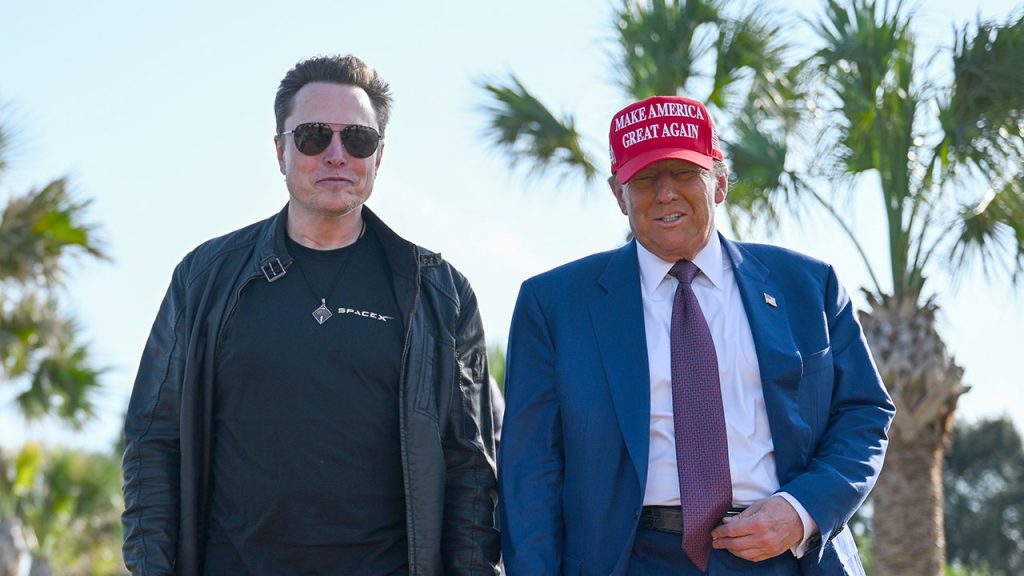The implosion of a bipartisan stopgap spending deal, narrowly averting a government shutdown, ignited a firestorm of criticism from Senate Democrats, who pointed fingers at billionaire Elon Musk for his perceived influence over President-elect Trump and the Republican Party. The drama unfolded after Musk publicly denounced the 1,547-page bill on his social media platform X, citing its length, cost, and seemingly inconsequential provisions. This critique was echoed by other prominent figures, including Trump and Vice President-elect JD Vance, who subsequently issued a joint statement opposing the deal. This chain of events led to accusations from Democrats that Musk wielded undue sway over the GOP, effectively derailing a crucial piece of legislation and jeopardizing government operations.
Democratic senators employed a barrage of labels to describe Musk’s perceived role, including “co-president,” “shadow speaker,” and the individual “in charge of the country.” Senator Elizabeth Warren asserted that Musk appeared to be “calling the shots” within the Republican Party, suggesting his influence was responsible for the bill’s demise. Senator John Fetterman echoed this sentiment, dubbing Musk the “shadow speaker of the House,” a pointed jab at Speaker Mike Johnson. Senator Raphael Warnock accused Republicans of prioritizing the opinions of “Co-President Musk and co-President Trump” over the needs of the American people, specifically referencing struggling farmers awaiting disaster relief.
The core of the Democratic critique centered on Musk’s unelected status and his perceived overreach in governmental affairs. Senator Mark Kelly emphasized that Musk held no official government position and yet, his actions jeopardized the livelihoods of federal employees and the timely disbursement of salaries. The looming threat of a government shutdown, with a deadline set for midnight on Saturday, amplified the Democrats’ concerns, highlighting the potential impact of Musk’s intervention. The failure to pass a spending bill would have resulted in a partial shutdown, disrupting essential services and impacting federal workers.
While Democrats criticized Musk’s influence, Republicans refuted the notion that Trump was merely a puppet of the billionaire. Senator James Lankford acknowledged that Trump has a diverse circle of advisors and dismissed the idea that Musk exerted singular control over the president-elect’s decisions. This counter-narrative sought to downplay Musk’s role and portray Trump’s decision as independent and well-considered. The differing perspectives underscore the partisan divide and the ongoing debate about the appropriate boundaries between private individuals and the political process.
Underpinning this political wrangling was the stark reality of the escalating U.S. national debt, which stood at over $36 trillion and continued its relentless climb. The stopgap spending bill, intended to avert a government shutdown and ensure continued funding for federal operations, became entangled in this broader economic context. The debate surrounding its provisions, cost, and length reflected deeper anxieties about fiscal responsibility and the sustainability of government spending. Musk’s critique, regardless of its motivation or accuracy, tapped into these prevalent concerns and resonated with a segment of the public wary of government overspending.
Adding another layer of complexity to the situation was Musk’s impending role as a leader of the Department of Government Efficiency (DOGE), a proposed advisory board tasked with identifying and eliminating government waste. Trump’s selection of Musk and former presidential candidate Vivek Ramaswamy to head this initiative signaled his commitment to streamlining government operations and curbing spending. This appointment, combined with Musk’s public stance on the spending bill, further fueled the Democratic narrative of his undue influence on government policy. The controversy surrounding Musk’s involvement underscores the challenges of balancing fiscal responsibility with the need for effective government functioning and the ongoing debate over the role of private individuals in shaping public policy.

